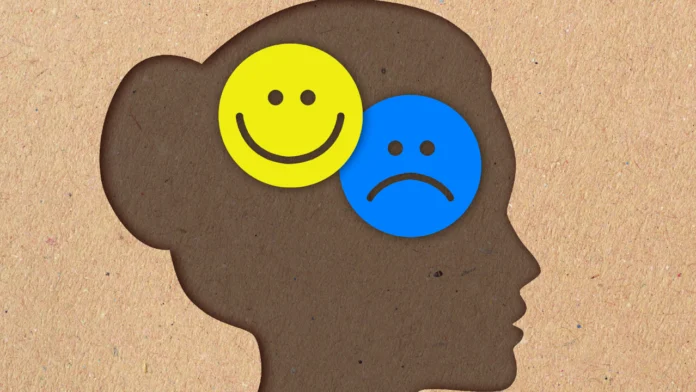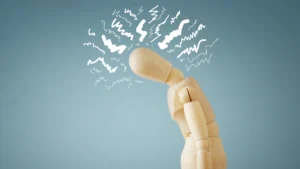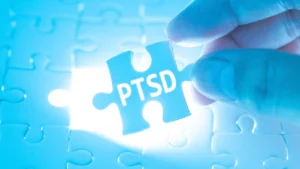What Is Depression?
Depression is a mental health condition that is prevalent but frequently underdiagnosed and insufficiently treated today. Depression can impact how a person thinks, feels, and behaves.
It’s characterized by persistent feelings of sadness, lack of interest in previously enjoyed activities, and hopelessness. Depression is a mood disorder that differs significantly from normal occasional feelings of sadness, or “feeling down,” that everyone experiences from time to time.
Therapy.com is user supported. We receive a commission fee from purchases made through BetterHelp links.
Learn More
When you experience a painful life event such as the loss of a loved one, financial difficulties, or relationship problems, it’s normal and even healthy to feel sad or depressed. But clinical depression is something different.
Clinical depression is a condition that lasts for several weeks or months, and significantly affects daily life functions. Differentiating between normal sadness and clinical depression is important to help you or your loved one seek appropriate treatment.
Common Symptoms and Signs of Depression
Depression can present in various ways and can impact physical, emotional, and behavioral aspects of someone’s life. Symptoms of depression may vary in duration and severity based on the individual, sometimes making it a challenge to diagnose.
The physical symptoms of depression may include:
- Fatigue or low energy despite resting
- Changes in sleep patterns (such as insomnia or excessive sleeping)
- Unexplained aches, pains, or digestive issues
- Changes in appetite and weight
- Some common emotional symptoms of depression include:
- Persistent sadness, loneliness, hopelessness, or feelings of emptiness
- Irritability or frustration
- Loss of interest or pleasure in activities previously enjoyed
- Excessive feelings of guilt, worthlessness, or self-blame
Behavioral symptoms of depression may involve:
- Pulling back from friends and loved ones
- Self isolation, including not attending social interactions and activities
- Difficulty concentrating, making decisions, or remembering things
- Slowed speech or movements
- Getting agitated over small matters
- Suicidal thoughts, self harm behaviors, or suicide attempts
Symptoms for Manic Depression (Bipolar Depression)
Bipolar disorder is made up of two phases: periods of depression and periods of mania.
People with this condition typically spend much more time in depression than in mania. In fact, some individuals may only have one episode of mania during their entire lifetime. However, it’s the presence of those episodes that can help determine if someone is suffering from bipolar depression.
First episodes of mania usually occur around the 20-30 year mark, and there’s a second peak when people turn 40 to 60 years old. Due to this lack of mania, depression isn’t always recognized as part of bipolar disorder.
To be classified as mania, a manic episode must last for at least seven days or result in a hospital stay. These episodes are characterized by periods of impulsivity, sudden high energy, or euphoria, and a decreased need for sleep, followed by a severe depressive episode.
It can be challenging to identify the presenting symptoms of these depressive periods because they’re fairly indistinguishable from those of unipolar depression. However, there may be some clues that it’s not typical depression, such as not responding as expected to antidepressants.
Therapy.com is user supported. We receive a commission fee from purchases made through BetterHelp links.
Learn More
Diagnosing Depression
Some people with clinical depression may only experience a few symptoms, while others may experience all of them.
Furthermore, symptoms of depression can change over time, with periods of improvement followed by worsening episodes of depressive symptoms. Factors such as genetics, environment, and co-occurring mental health conditions can also influence the presentation of depressive symptoms.
For this reason, depression can be difficult to diagnose, but early intervention is often key to recovery. This makes learning to recognize the symptoms in their myriad forms essential.
FAQs
If you have been experiencing persistent sadness, fatigue, loss of interest in activities, suicidal thoughts, or other depressive symptoms for more than two weeks, contact a medical professional to see if you may have depression. An evaluation is recommended to determine what treatment plan is best for you.
Major depression usually has prolonged periods of sadness and low energy that can last weeks to months. Bipolar depression is one part of a two-phase condition (bipolar disorder). These depressive episodes present similarly to unipolar depression, but the presence of intervening manic or hypomanic episodes sets them apart.
Treating depression typically includes a combination of therapy, antidepressants and lifestyle changes. Each approach to major depression treatment should be customized to the individual person’s needs. This process will take a host of factors into account, including symptom severity, the presence of co-occurring conditions, personal and family medical history, and lifestyle factors.
Seasonal affective disorder (SAD) is a type of depression that happens seasonally, usually during fall and winter. It is thought to be linked to reduced sunlight exposure which may impact the body’s circadian rhythms and the circulation of mood regulating neurotransmitters, such as serotonin and dopamine.
Depression related to SAD may be treated with light therapy, lifestyle modifications, and medication.
While there is no cure for depression, the condition is highly treatable. You can find significant symptom relief through therapy, medication, and self care strategies.
It’s also important to understand that it’s possible to just have a single episode of depression and not have a recurrence. Typically, this means that the depression is “in remission.” If someone has persistent, recurring depression, then the condition can become chronic. That individual may still have some residual symptoms even after treatment.
Types of Depression
There are a few different forms of depression, each with its own set of symptoms.
It is important to understand the different types of depression and their nuances to help differentiate between diagnoses and better individualize treatment.
Major Depression (Clinical Depression)
Major depression is the most common type of depression. It is marked by persistent sadness, loss of interest in daily activities, and other symptoms that hinder everyday functioning.
Treatment varies based on the individual and specific symptoms experienced, but it often involves a combination of therapy, medication, and lifestyle adjustments.
Therapy.com is user supported. We receive a commission fee from purchases made through BetterHelp links.
Learn More
Bipolar Depression (Manic Depression)
Depression that is part of bipolar disorder involves alternating periods of extreme highs and lows.
During manic episodes, individuals may experience increased energy, restlessness, impulsivity, and feelings of euphoria or agitation. They may also have less need for sleep.
During depressive episodes, they experience symptoms similar to major depression. Treatment often includes mood stabilizing medications and psychotherapy to manage these mood fluctuations.
Postpartum Depression (PPD)
Postpartum depression (PPD) primarily affects new mothers following childbirth. Hormonal changes, stress and exhaustion all play a role in the development of this condition.
Symptoms may include severe mood swings, difficulty bonding with the baby, overwhelming fatigue, and feelings of inadequacy or guilt. PPD is a serious condition that requires prompt medical intervention to ensure both the mother’s and baby’s wellbeing.
Seasonal Depression (Seasonal Affective Disorder)
Seasonal depression is a type of depression that occurs during specific seasons, mostly in the winter. It’s brought on by reduced sunlight exposure.
Symptoms may include fatigue, social withdrawal, oversleeping, and changes in appetite. Light therapy, vitamin D supplements, and antidepressants may help treat SAD.
Depression Diagnosis and Testing
Depression (and all psychiatric conditions) is primarily diagnosed based on a clinical interview. Mental health professionals can use structured questionnaires as complements to the interview, but these aren’t diagnostic.
Clinicians will assess an individual’s symptoms based on the criteria outlined in the Diagnostic and Statistical Manual of Mental Disorders (DSM-5), which provides a standardized set of criteria used by clinicians to diagnose mental health disorders.
A doctor may then use structured questionnaires, psychological assessments, and medical tests to rule out underlying conditions such as thyroid disorders or vitamin deficiencies that could contribute to depressive symptoms.
Consult a professional if you’re experiencing common depressive symptoms and find they persist for more than two weeks or they interfere with work, relationships, or daily life. Please seek emergency care immediately if you are experiencing suicidal thoughts or self harm behaviors.
Depression Treatment and Therapy Options
Effective treatment for depression should be tailored to an individual’s needs and often involves a combination of psychotherapy and depression medication.
These treatment options aim to address underlying causes of depression, mitigate depression symptoms, and enhance overall wellbeing to help individuals achieve long term recovery.
Therapy:
Cognitive-Behavioral Therapy (CBT): CBT is a structured, evidence based therapy that helps individuals identify and change negative thought patterns. This approach helps patients create coping strategies to manage stress, regulate emotions, and develop healthier behaviors.
Therapy.com is user supported. We receive a commission fee from purchases made through BetterHelp links.
Learn More
Psychotherapy (Talk Therapy): This category covers all kinds of therapy. This includes supportive therapy, which is classically seen as “talk therapy.” It focuses on a identifying and supporting a client’s current strengths and managing crises as they arise.
Psychotherapy provides a safe space for individuals to explore emotions, past traumas, and personal challenges with a trained therapist, promoting self awareness and emotional healing.
Interpersonal Therapy (IPT): IPT focuses on resolving interpersonal issues and improving communication skills, which can play a big role in relieving depressive symptoms by fostering self expression and strengthening social support networks.
Medication:
Selective Serotonin Reuptake Inhibitors (SSRIs): Selective serotonin reuptake inhibitors are medications that increase the availability of serotonin in the brain. Serotonin plays a role in the regulation of mood and anxiety.
Serotonin Norepinephrine Reuptake Inhibitors (SNRIs): SNRIs are a class of medications that increase serotonin and norepinephrine levels. SNRIs are thought to be more energizing, while helping to regulate mood and anxiety.
Mood Stabilizers: Mood stabilizers are usually prescribed for bipolar disorder to decrease mood swings and prevent extreme depressive or manic episodes.
Treatment Resistant Depression
There are some severe and persistent cases of depression known as “treatment resistant depression”.
This refers to depression disorders that do not respond to typical treatment protocols, including the frequent relapse or the exacerbation of symptoms despite consistent treatment with psychotherapy and/or medication.
In such cases, alternative treatments are available:
Transcranial Magnetic Stimulation (TMS): TMS is a non-invasive procedure that helps relieve symptoms of depression by using magnetic fields to stimulate certain neve cells in the brain.
Electroconvulsive Therapy (ECT): ECT is a medical procedure that uses electrical stimulation to the brain to relieve severe depressive symptoms in individuals who have not responded to other treatments.
Ketamine Therapy: Ketamine therapy is an emerging treatment option that has shown rapid antidepressant effects. It involves the use of a dissociative anesthetic called ketamine in controlled, low doses that rapidly alleviate depressive symptoms and show significant improvement in mood and energy levels within hours or days.
In addition to therapy and medication, lifestyle changes can also greatly help to improve depression symptoms. Regular exercise can boost mood by increasing endorphin production, while a balanced diet can support physical and psychological wellness.
In addition, practicing good sleep hygiene, staying socially connected, and managing stress through mindfulness or relaxation techniques can further help alleviate symptoms.
Therapy.com is user supported. We receive a commission fee from purchases made through BetterHelp links.
Learn More
Depression is a serious but treatable condition. Recognizing symptoms early and seeking professional help can significantly improve quality of life and alleviation of symptoms.
With appropriate treatment, including therapy, medication, and lifestyle changes, individuals with depression can achieve long term wellness and recovery.
If you or a loved one believe you may be experiencing depression, please reach out to your medical or mental health professional to get an evaluation and help.




